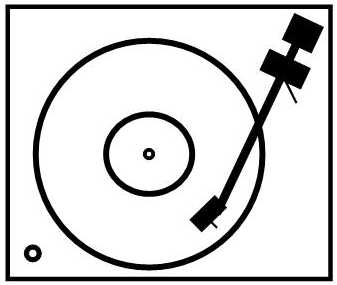
Pladespilleren.dk 
Hana Umami Red - an impressive musical cartridge
Danish distirbuter: Scandinavian Audio Systems - price DKR. 29.500,- / EURO 3950.-
Hana: HANA | Youtek.com Last update - January 30, 2021
A captivating red gemstone - Hana Umami Red 華
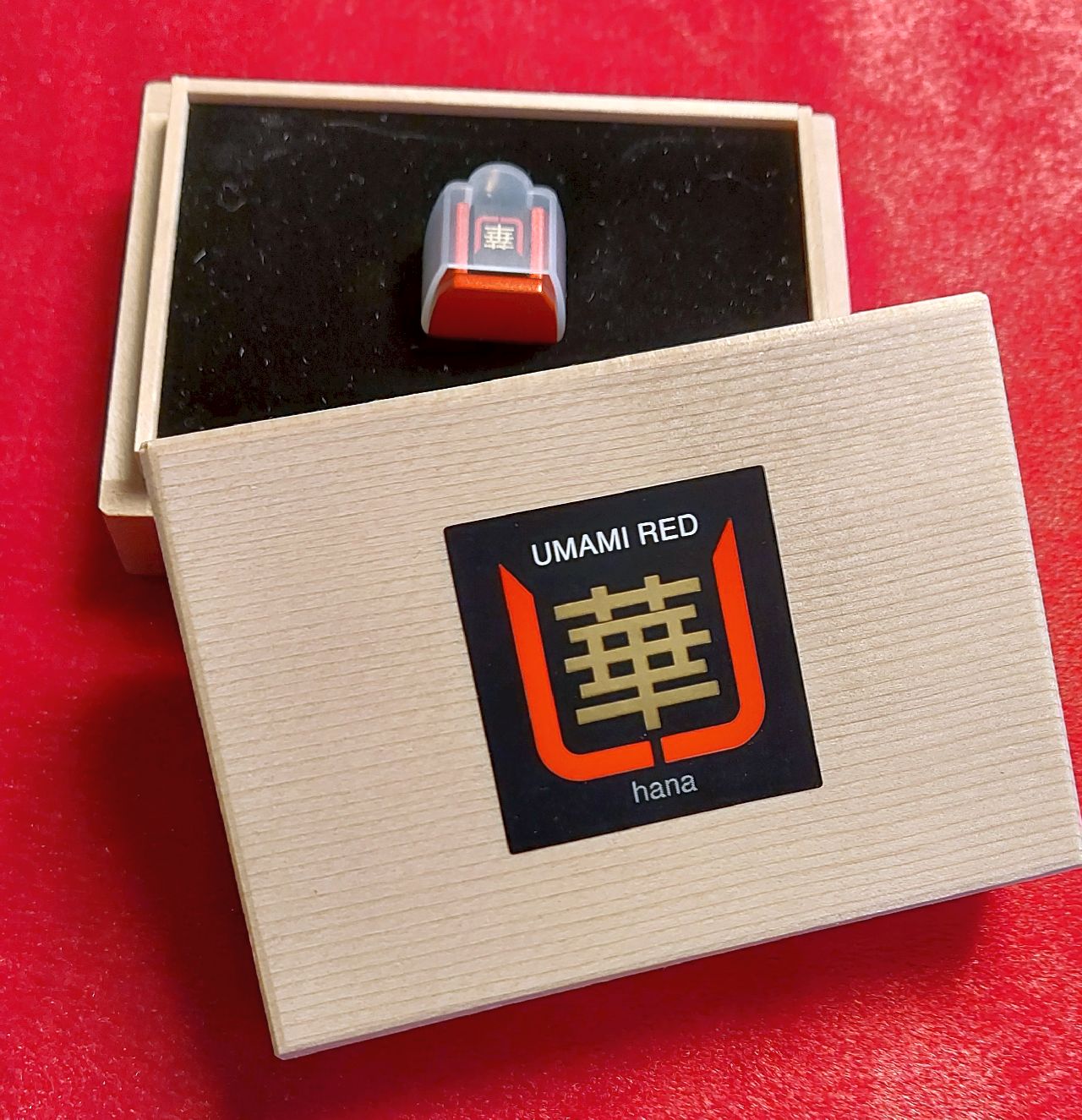 It is only approx. 4 months ago I listened to the amazing Hana ML. (SEE HERE)
An excellent pickup to say the least, which in many areas offers far
beyond its price. Back then, I mentioned the new top model Hana Umami
Red, which was born on September 22, 2020. Now it has arrived in my
home and has been playing music for a while.
It is only approx. 4 months ago I listened to the amazing Hana ML. (SEE HERE)
An excellent pickup to say the least, which in many areas offers far
beyond its price. Back then, I mentioned the new top model Hana Umami
Red, which was born on September 22, 2020. Now it has arrived in my
home and has been playing music for a while.
Umami
Red is Hana's bid for a true high-end pickup. Can it match the
exclusive class, of very expensive cartridgess? It stands out somewhat
from the crowd, as Maso Okade-san from Excel Sound Corporation has made
some choices. Not all choices are. what one would expect nor what one
sees in typical high-end cartridges in this price range.
But
no doubt attention has been paid to the details in the very nice and
immediately aesthetically pleasing cartridge with a finish in nice red
Urushi lacquer. The fine curves in the red duralminium house are an
attempt to mimic some of those curves. we have in our ears.
The
term “umami” is taken from the food world and refers to the special
taste that occurs when all ingredients form a synergy and create
something beyond sour, sweet, bitter and salty. In other words,
something that is more than the sum of the ingredients. After listening
to the Red Umami I can better relate to this somewhat strange
comparison with gatronomy and the joys of food. Ssomehow there is
probably something about it.
Now
it should be exciting to hear what Hana can do in this expensive class,
where the competition is fierce. Of course, Hana Umami Red has a wide
range of features that make it worthy of its high-end designation. If
we start where it all begins, then a nude diamond with a microline cut
is used. As usual, these tips tracks excellently, but also requires
precise setup. When done correctly and given the right conditions, it
will reward you with a large open sound stage and a wealth of details.
The
cantilever is solid boron, very thin and relatively long. The coil
system itself is with high purity 30 micron copper wound on a square
permalloy anchor. Here we see something a little unusual. By using a
magnetizable anchor, Hana ensures a somewhat higher output, but the
moving mass is increased. On the other hand, you can make do with fewer
windings for the same signal. With 0.4 mV out and 6 ohms internal
impedance, it seems as if output is prioritized. Other competitors
typically have somewhat smaller output and a coil system wound on air
or a non-magnetizable core.
Hana
does not say anything about the suspension, but with a compliance
around 17 (dynamic at 10 Hz) it fits perfectly in most not too heavy
arms.
The
magnetic system is, as on the Hana ML, cryogenically treated samarium
cobalt. All other metal parts including the terminals are also
cryogenically treated. The house itself is hand-built in A7075 duralmin
in combination with mahogany. At the outside you find several lalyers
of the classic Japanese red Urushi lacquer.
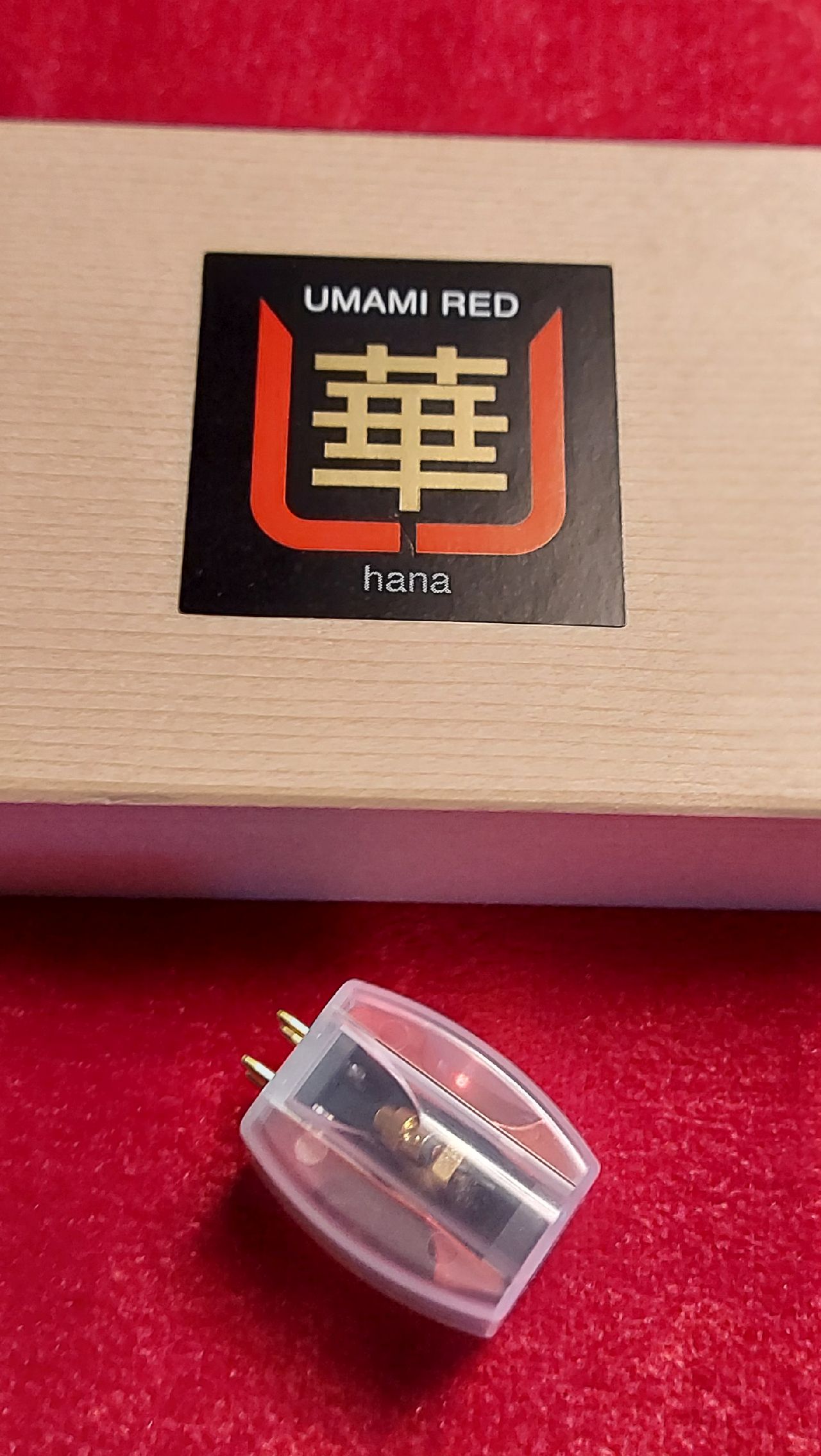 Specs:
Specs:
Channel difference: <0.5 dB / 1 kHz
Recommended tracking: 2g
Tracking capability: 70µ / at 2g
Compliance: 10 x 10 (-6) cm / dynamic at 100Hz, 17 x 10 (-6) cm / dynamic at 10Hz
Channel separation: 30dB @ 1kHz
Frequency range: 15Hz to 50kHz
Internal impedance: 6Ω
Suggested load:> 60Ω
Weight: 10.5g
At
first glance, I would probably recommend a somewhat higher load than 60
ohms, but it depends a bit on equipment and preferences. I used 100
ohms via my Accuphase C27 RIAA. Alternatively a resulting load of
approx. 180 ohms via my Lundahl LL 1933Ag stepup transformer, which
gave approx. 6.2 mV out. .
Assembly
Usually
I do not read manuals in detail, but here I was curious about the
description and if there were more than what I could find on the Web.
No, but in the end it says "WARNING". I definitely had to read that.
Three sets of small Allen bolts for mounting 4, 5 and 6 mm long are
included. Please note that the screw holes in Umami Red are only 3 mm
deep! Trying to force longer screws in can ruin the cartridge! The
Oyaide carbon fiber housing I used was approx. 3.5 mm thick, so I chose
to use the 6 mm Allen screws. With my Triplanar I had to use the 5 mm
version.
Initially,
I chosed my Jelco TK-850L arm, which was a very successful combination.
My Glanz MH 124s arm and DV 507 mk II were also briefly tested. The
last few days of the test period I had my Triplanar Mk IVi arm
reassembled. At first there was absolute control and a good combination
with the Jelco arm, but via Triplanar the image grew and new details
were opened up. In short, a better arm for this task and a
distinguished partner for the Hana pickup.
Needle protector
As
can be seen in the pictures, Hana has made a smart needle guard that
covers the entire pickup. I have often seen needle protectors that act
more like small guillotines designed to chop the needle off. This is
certainly not the case here. A super needle guard that can be easily
put on during assembly and which is easy to remove and put on again.
The
pictures show the setting of the overhang using my Feickert
protractor. This adjustment takes time - a mobile phone with a good
camera helps a lot. In the middle, adjust the needle pressure - as
close to the two grams as possible. To the right adjustment of VTA.
Note the very thin but relatively long needle tab.
The sound of Umami
Yes,
there is definitely more of everything compared to the Hana ML.
Still the great overview and the ability to reproduce smoothly and
effortlessly. A kind of acoustic characteristic of Hana. There is again
the immediate calm and the unforced, controlled, yet revealing
reproduction
I
especially noticed the silence, or what is called "inter transient
silence". So how is that to be understood? Take e.g. voices - Jussuf /
Tea for the Tillerman. A record I have now heard many times, but not
like here. His voice is distinct in the image without wrapping - no
exaggeration of the chest or emphasis on s- and t-sounds. But just as
importantly, there is silence when he stops singing. The same applies
to e.g. an acoustic guitar. Strings start and ring out to silence.
Nothing extra. There is an immediacy and an ability for the details to
just flow without having to make an effort to hear them even when it
comes to complicated music with many instruments. This wil also help
you to hear the space and dept much more clearly. There is a presence
and an insight into the music experience. Absolutely approved.
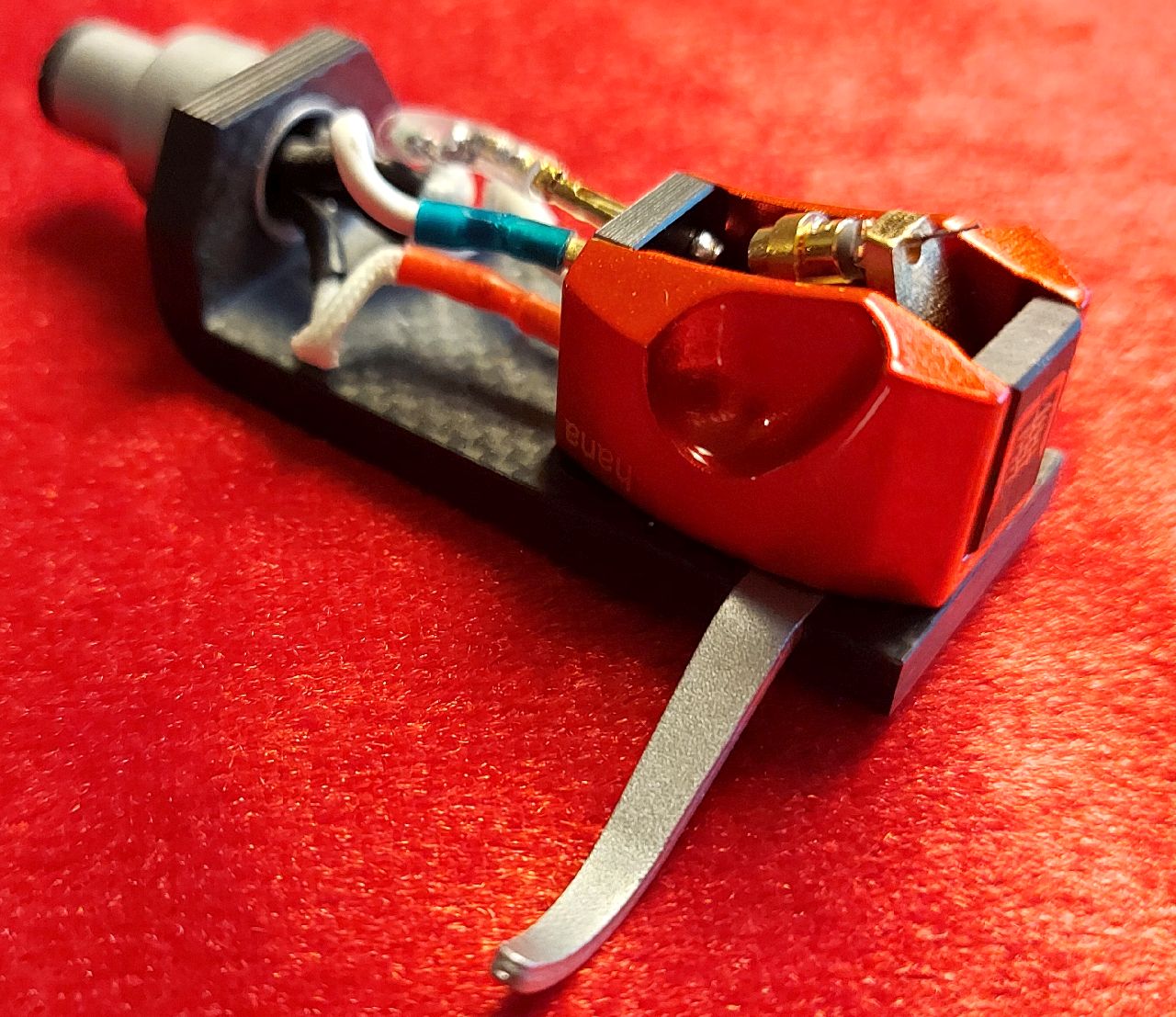 Another
example is the piano. Here I have chosen Nojima plays Liszt (Reference
Recordings pure analog from 1986). A very excellent record and Nojima
is a phenomenal pianist. But in addition to being impressed, you are
also involved. Something almost magical happens and it is much easier
to imagine how he sits in front of the big grand piano. Imagine how
hands and fingers fly over the keys. There's an almost organic feel to
this way of reproducing the music - maybe Umami? Hifi sound with
imaginary images in 3D and colors! At the same time, there is a
marvelous ability to separate the individual strokes so that they are
defined and clear in the soundscape. In any case, a great musical
experience where I heard this record in a new way.
Another
example is the piano. Here I have chosen Nojima plays Liszt (Reference
Recordings pure analog from 1986). A very excellent record and Nojima
is a phenomenal pianist. But in addition to being impressed, you are
also involved. Something almost magical happens and it is much easier
to imagine how he sits in front of the big grand piano. Imagine how
hands and fingers fly over the keys. There's an almost organic feel to
this way of reproducing the music - maybe Umami? Hifi sound with
imaginary images in 3D and colors! At the same time, there is a
marvelous ability to separate the individual strokes so that they are
defined and clear in the soundscape. In any case, a great musical
experience where I heard this record in a new way.
Venice
with Solti and Orchestra of the Royal Opera house, Covent Garden I have
mentioned this record before. Here are overtures from famous Italian
operas. Magnificent and very delicius. Again you get an insight into
the experience with a large room and a wide image. You can clearly hear
the power in the magnificent music. Should I criticize something, there
is a slight tendency to a little harshness in the many strikers. But
pickups had only played here approx. 20 hours, so it may change with
time. On another recording, I did not experience these tendencies at
all, rather the opposite. Lots of delicious top with details that were
in no way clinical or exaggerated.
Then
one of the favorites came on. Madelein Peyrou, who according to my
girlfriend is "old music". It is now brand new, but yes - it sounds
like old music. Her voice is often compared to Billie Holliday and
there is something about it. The record is not flashy, dynamic and
impressive. Instead, it is with soul and empathy. Again that special
thing that makes you want to hear more. The voice almost snuggles
around the listener and the whole thing is just extra delicious. A
large open listening window is provided which just gives the extra that
we with good systems aspire to. Yes, this cartridge is hifi and
high-end, but it is definitely a music communicator as well.
Details, top and bottom
What
impressed me most from the start were voices that stand with great
detail and almost breathe down your neck. It all seems more flesh and
blood. Absolutely first class. But what about top and bottom? The
bottom is powerful and it is controlled. This is even more true with
the Triplanar arm, which has an ability to keep in the background and
just let the cartridge show what it can do. You will be amazed by the
fullness and dynamics that can lie in the grooves. Yello / Point has
lots of bottom, and here it seems even more impressive if possible.
However, it is a bottom with fullness and not so much leading edges in
the upper bass. Strokes on percussion bass or drums are there, but to a
lesser extent than I have experienced it on my better cartridges. Thus
compared to the much more expensive Ikeda 9Gss, where one hears that it
delivers somewhat more control and firmness in the upper bass. Still, I
would say that Umami Red at no point lacks level or empathy. It just
has a fuller and larger bottom.
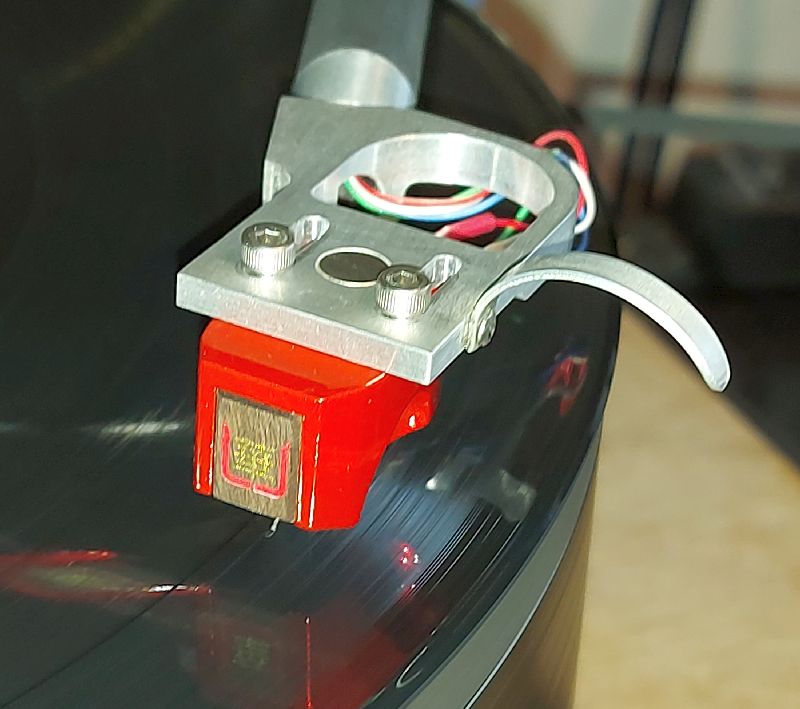 The
top via Umami Red is distinct and at times straight with an extra
sprinkle of detail. Again, it was more pronounced via the Triplanar
arm, where the top just pulled a little forward in the soundscape. On
strikes on bells or other metal instruments, it all sounds nice and
delicious. Lots of air and a lightness. Primarily on classical music
and strings, I experienced a tendency to pull it all just a notch
closer. There was a focus on some of the slightly raw and unpolished
that may be in the string instruments. Actually, I do not find that it
in any way matters to the overall impression. It just shows. that the
Umami Red is revealing despite the otherwise immediately very laid-back
and effortless rendering.
The
top via Umami Red is distinct and at times straight with an extra
sprinkle of detail. Again, it was more pronounced via the Triplanar
arm, where the top just pulled a little forward in the soundscape. On
strikes on bells or other metal instruments, it all sounds nice and
delicious. Lots of air and a lightness. Primarily on classical music
and strings, I experienced a tendency to pull it all just a notch
closer. There was a focus on some of the slightly raw and unpolished
that may be in the string instruments. Actually, I do not find that it
in any way matters to the overall impression. It just shows. that the
Umami Red is revealing despite the otherwise immediately very laid-back
and effortless rendering.
The contrasts
The
biggest difference is often experienced when switching back to
something completely different. That was definitely the case here as
well. My best cartridges held their pace, although they as expected
played differently. My Ikeda is more sober, tight and correct. Compared
to the bubbly and almost playful Umami Red. It thus came as something
of an anticlimax to switch back to some of my other somewhat cheaper
pickups. Still with absolute hifi qualities, but the empathy and joy of
playing with Umami Red is something you will soon miss.
Conclusion
At
first, I expressed some doubts about Hana Umami Red's chances in
relation to the tough competition. But yes - this is definitely a
high-end cartridge that can perform among the competitors in the same
price range. I have listened to the best Benz, Clear Audio, Ikeda,
Dynavector, Koetsu and others. and yes - this is equally good.
Umami
Red is distinguished by an enchanting transparency and an insight into
the music experience. It is more warm and embracing than sterile and
super accurate. I was repeatedly impressed by well-known records - "can
they also sound like that?", Is it Umami that makes you experience new
things in music? I do not know, but it all happens in an easy way,
because Umami Red reproduces with details that just flow out of the
speakers. At the same time, it has that indefinable - an ability to
draw you into the music and keep you trapped. Definitely not a bad
ability, because it means you get even more pleasure from your records.
The little red Umami is absolutely recommended - it's still stuck in my
Triplanar arm. Maybe it will stay there?
Update January 30th
Yes, i bought the Umami. Now it will stay and play wonderful music!
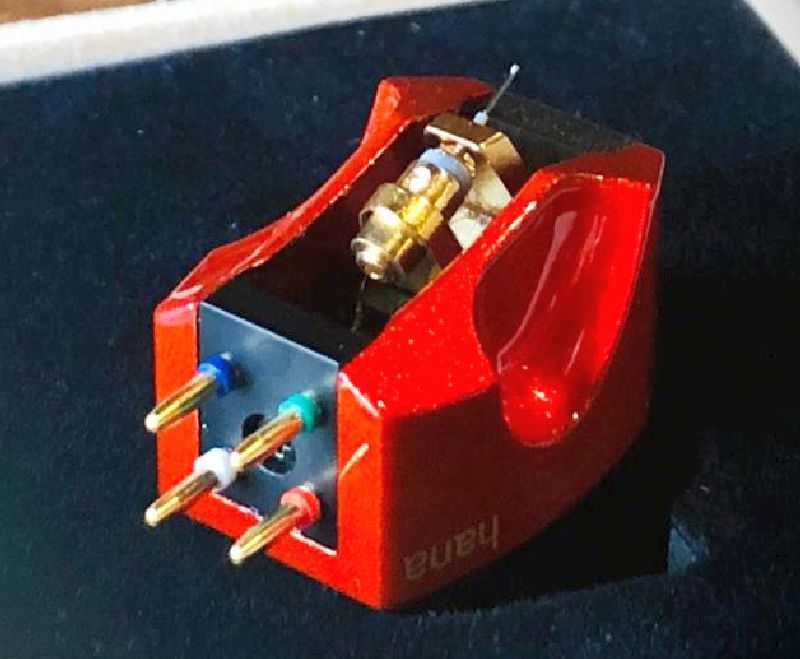
TO THE FRONT PAGE (in Danish)
![]()
 It is only approx. 4 months ago I listened to the amazing Hana ML. (SEE HERE)
An excellent pickup to say the least, which in many areas offers far
beyond its price. Back then, I mentioned the new top model Hana Umami
Red, which was born on September 22, 2020. Now it has arrived in my
home and has been playing music for a while.
It is only approx. 4 months ago I listened to the amazing Hana ML. (SEE HERE)
An excellent pickup to say the least, which in many areas offers far
beyond its price. Back then, I mentioned the new top model Hana Umami
Red, which was born on September 22, 2020. Now it has arrived in my
home and has been playing music for a while. Specs:
Specs: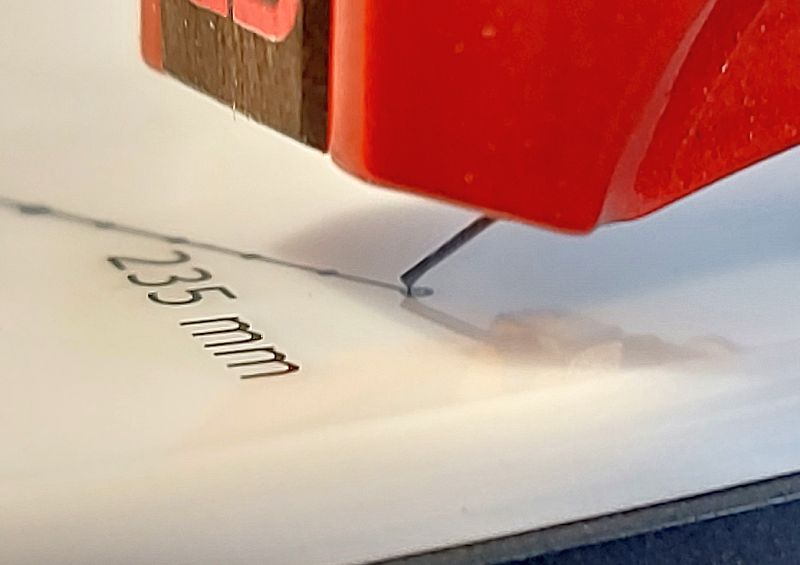
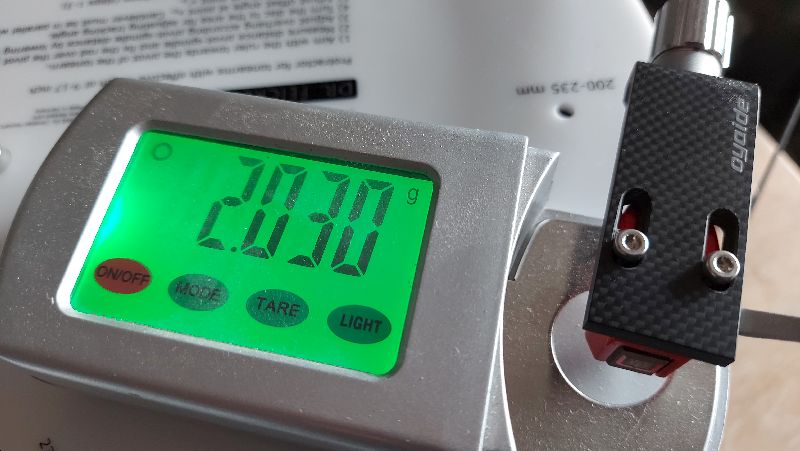
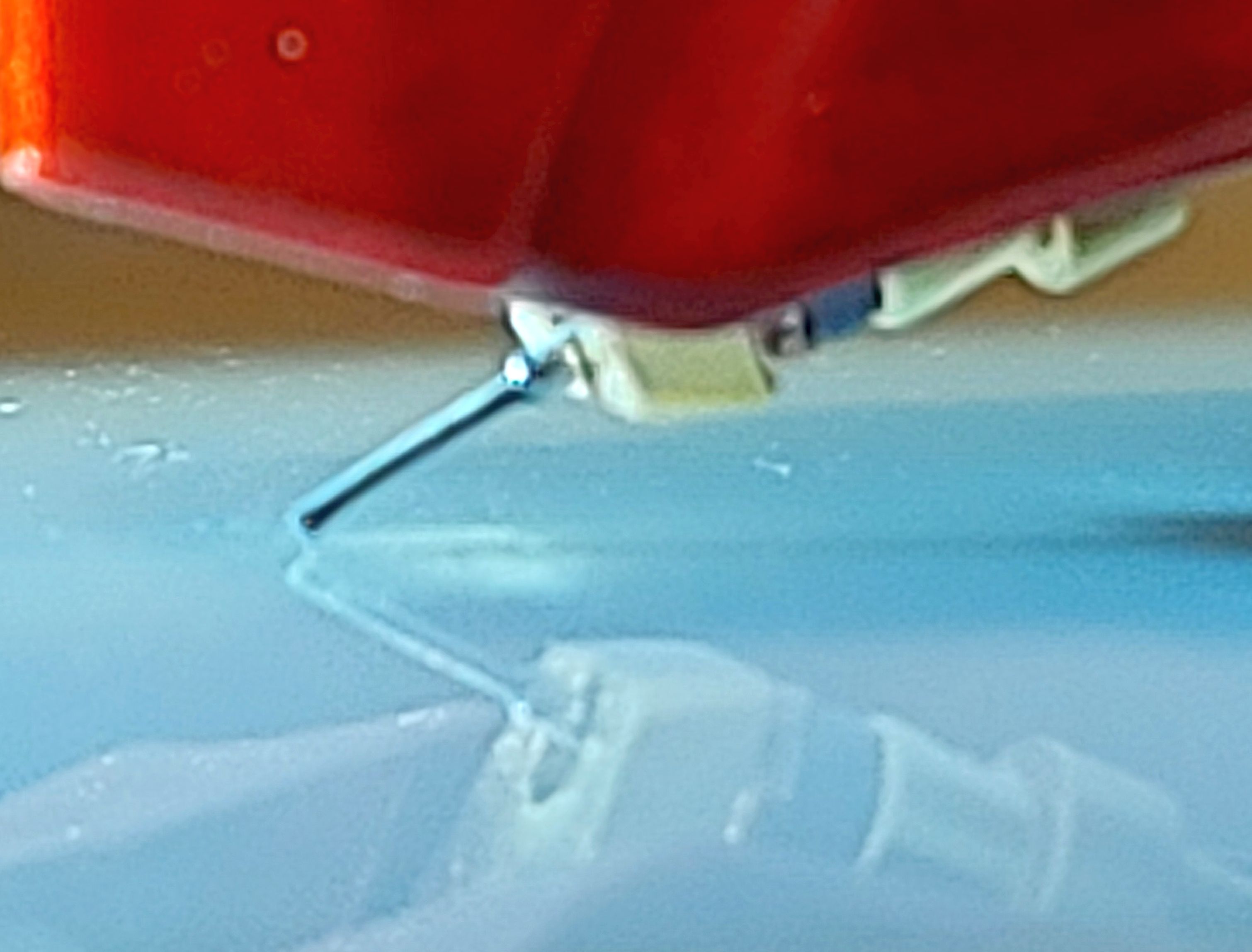
 Another
example is the piano. Here I have chosen Nojima plays Liszt (Reference
Recordings pure analog from 1986). A very excellent record and Nojima
is a phenomenal pianist. But in addition to being impressed, you are
also involved. Something almost magical happens and it is much easier
to imagine how he sits in front of the big grand piano. Imagine how
hands and fingers fly over the keys. There's an almost organic feel to
this way of reproducing the music - maybe Umami? Hifi sound with
imaginary images in 3D and colors! At the same time, there is a
marvelous ability to separate the individual strokes so that they are
defined and clear in the soundscape. In any case, a great musical
experience where I heard this record in a new way.
Another
example is the piano. Here I have chosen Nojima plays Liszt (Reference
Recordings pure analog from 1986). A very excellent record and Nojima
is a phenomenal pianist. But in addition to being impressed, you are
also involved. Something almost magical happens and it is much easier
to imagine how he sits in front of the big grand piano. Imagine how
hands and fingers fly over the keys. There's an almost organic feel to
this way of reproducing the music - maybe Umami? Hifi sound with
imaginary images in 3D and colors! At the same time, there is a
marvelous ability to separate the individual strokes so that they are
defined and clear in the soundscape. In any case, a great musical
experience where I heard this record in a new way. The
top via Umami Red is distinct and at times straight with an extra
sprinkle of detail. Again, it was more pronounced via the Triplanar
arm, where the top just pulled a little forward in the soundscape. On
strikes on bells or other metal instruments, it all sounds nice and
delicious. Lots of air and a lightness. Primarily on classical music
and strings, I experienced a tendency to pull it all just a notch
closer. There was a focus on some of the slightly raw and unpolished
that may be in the string instruments. Actually, I do not find that it
in any way matters to the overall impression. It just shows. that the
Umami Red is revealing despite the otherwise immediately very laid-back
and effortless rendering.
The
top via Umami Red is distinct and at times straight with an extra
sprinkle of detail. Again, it was more pronounced via the Triplanar
arm, where the top just pulled a little forward in the soundscape. On
strikes on bells or other metal instruments, it all sounds nice and
delicious. Lots of air and a lightness. Primarily on classical music
and strings, I experienced a tendency to pull it all just a notch
closer. There was a focus on some of the slightly raw and unpolished
that may be in the string instruments. Actually, I do not find that it
in any way matters to the overall impression. It just shows. that the
Umami Red is revealing despite the otherwise immediately very laid-back
and effortless rendering.